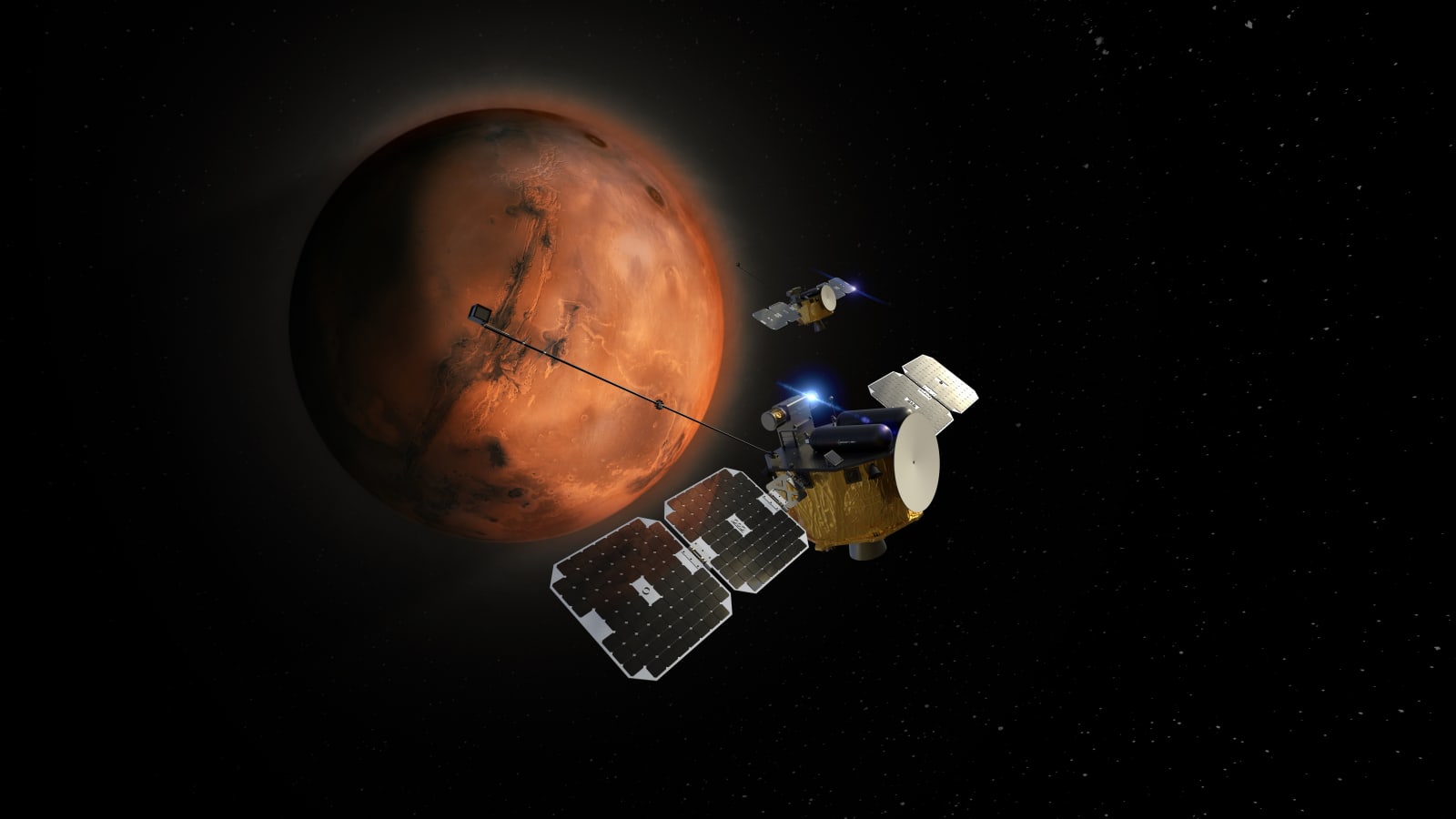Blue Origin aims for Mars in 2024 with twin NASA spacecraft
The company will launch NASA's two-spacecraft ESCAPADE mission in 2024 with its forthcoming New Glenn rocket, assuming Blue Origin has it ready in time.

Blue Origin is reaching from low Earth orbit to Mars.
NASA gave Blue Origin a task order to launch a Mars mission known as Escape and Plasma Acceleration and Dynamics Explorers (ESCAPADE). The agency announced the order in a statement published Thursday (Feb. 9).
The twin spacecraft should launch in late 2024 aboard Blue Origin's forthcoming New Glenn rocket, assuming the booster is ready in time, and will bring the company beyond the suborbital realms where it now flies.
ESCAPADE is slated to study the magnetosphere, the magnetic zone of the Red Planet's atmosphere, with twin craft designed by Rocket Lab. Two Mars-orbiting spacecraft will look at how the solar wind (charged particles from the sun) tore away the atmosphere over eons, thinning it considerably.
Mission results could allow scientists to learn more about how the planet got so dry over time, as billions of years ago it appears Martian water flowed abundantly on the surface.
Related: New evidence for liquid water on Mars suggests the planet is geothermally active
Blue Origin is part of a small pool of companies that were under consideration for the work. NASA selected it from the agency's Venture-Class Acquisition of Dedicated and Rideshare (VADR) shortlist of 13 companies formulated in 2022. Financial details of Thursday's contract were not released by NASA, but SpaceNews said it was $20 million based on government contracting records.
Breaking space news, the latest updates on rocket launches, skywatching events and more!
VADR is for "new opportunities for science and technology payloads and fostering a growing U.S. commercial launch market," according to NASA documentation. In 2022, NASA awarded Phantom Space Corp. four cubesat-class missions as a part of VADR; those launches are slated for 2024 on Phantom's Daytona rocket.
Blue Origin launches people and payloads alike with a smaller suborbital rocket called New Shepard. The booster suffered an uncrewed anomaly during launch on Sept. 12, 2022, halting all launches. Blue has provided no details of the investigation in the five months since the problem occurred.
When ready, New Glenn will come in two variants, a two-stage and a three-stage, to target orbital space and beyond. It is forecasted to top 313 feet (95 meters) in height, five times that of New Shepard's 59 feet (18 m).
Elizabeth Howell is the co-author of "Why Am I Taller?" (ECW Press, 2022; with Canadian astronaut Dave Williams), a book about space medicine. Follow her on Twitter @howellspace. Follow us on Twitter @Spacedotcom or Facebook.

Elizabeth Howell (she/her), Ph.D., was a staff writer in the spaceflight channel between 2022 and 2024 specializing in Canadian space news. She was contributing writer for Space.com for 10 years from 2012 to 2024. Elizabeth's reporting includes multiple exclusives with the White House, leading world coverage about a lost-and-found space tomato on the International Space Station, witnessing five human spaceflight launches on two continents, flying parabolic, working inside a spacesuit, and participating in a simulated Mars mission. Her latest book, "Why Am I Taller?" (ECW Press, 2022) is co-written with astronaut Dave Williams.
